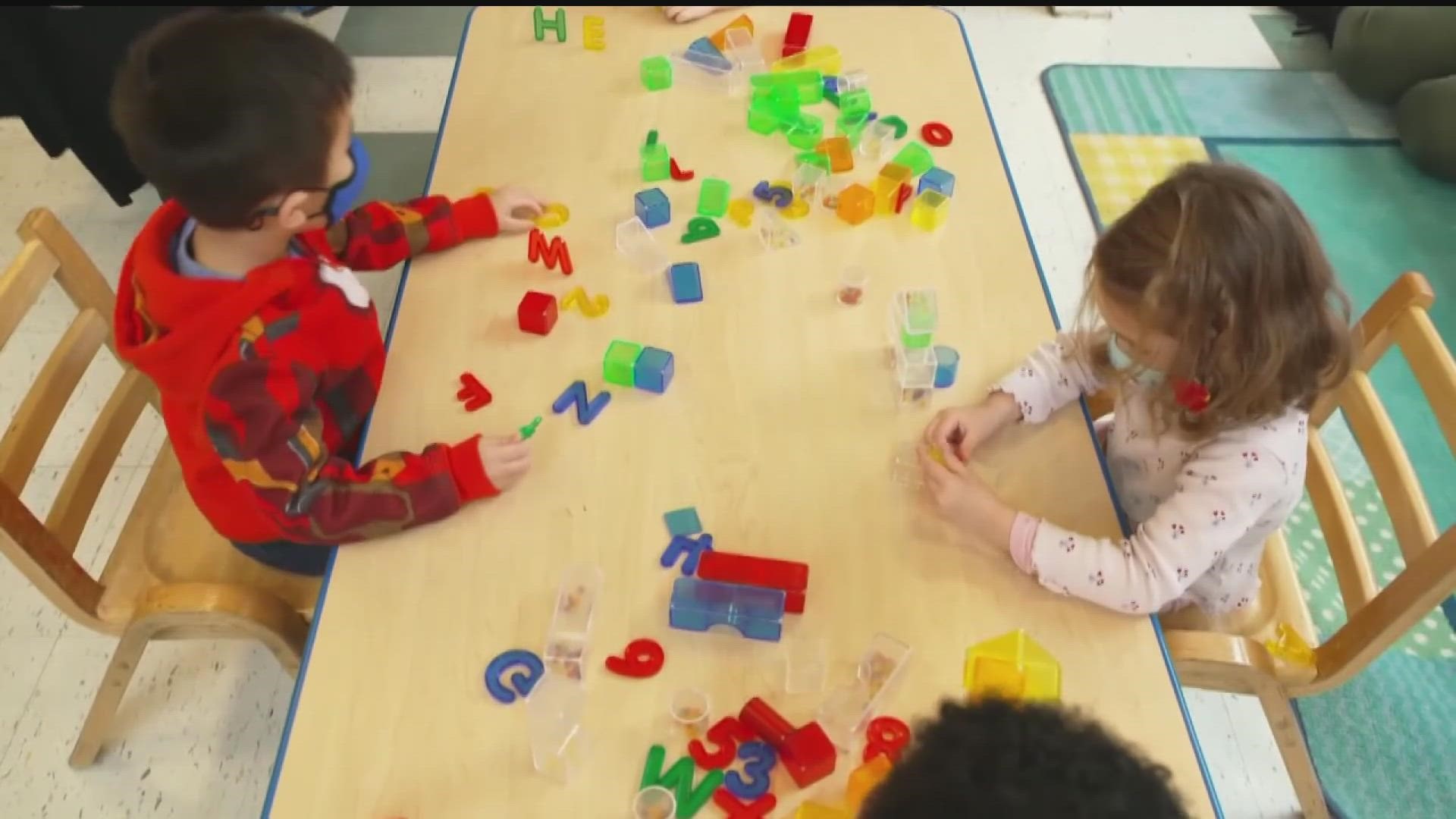ST PAUL, Minn. — The Minnesota House Monday passed two bills designed to bolster childcare providers, including one that would increase payments to in the Child Care Assistance Program for lower-income families.
Childcare advocates, teachers, parents and others chanted and cheered as lawmakers made their way into the chamber for the afternoon session.
"Two, four, six, eight, please increase our CCAP rate!" was one of the chants that echoed through the Rotunda, reinforcing a theme that daycare providers are struggling to stay open due to the state's low payment rates.
Rep. Dave Pinto of St. Paul authored both bills, calling them essential to aid providers dealing with staffing shortages and help more families afford daycare.
"This allows parents to work, employers to expand and communities to thrive now and into the future," Rep. Pinto told colleagues during the floor debate.
Many daycare providers are still dealing with staffing shortages that can be blamed partly on low wages. Pinto's House File 150 would devote $12 million to extend pandemic-era business stabilization grants until the summer. It would also send $40 million to the Minnesota Department of Education for Early Learning Scholarship Fund for preschoolers.
"This will provide the emergency funding child care centers need right now to keep the doors open," Amanda Schillinger, the director of Pumpkin Patch Child Care and Learning Centers in Burnsville and member of the Kids Count on Us Coalition told reporters.
"We look forward to members of the house showing Minnesota families and providers that they are valued by voting in support of these important bills."
The bill passed on a vote of 70 to 60, with all the "yes" votes coming from Democrats and all the "no" votes coming from Republicans. GOP legislators said they like the idea of expanding the early learning scholarship program but oppose any further bailouts of daycare providers.
They asserted those stabilization grants are helpful to large commercial daycare centers but have done nothing to prevent home daycare providers from leaving the industry.
"We've been doing stabilization grants, and we've been losing childcare providers hand over fist!" Rep. Anne Neu Brindley, the assistant minority leader, told House colleagues.
"Here we are, after passing these quote-unquote stabilizations grants, down 700 providers!"
Rep. Harry Niska, a Ramsey Republican, said that the scholarship model is the best way for parents to decide which preschools and providers deserve their patronage.
"Our state money should not just be sprayed equally across the field, based on headcount at some past point in time!"
Boosting CCAP payments
Pinto's second bill, House File 13, would boost the weekly rate the Minnesota Child Care Assistance Program pays to providers. It would set the new rate at the 75th percentile of childcare prices in each area, based on a survey conducted once every three years.
That's the maximum allowed under federal rules, because the CCAP program is subsidized in part with federal money. Minnesota's rate has lagged, making it among the lowest in the nation.
"Our rates at one point were so low we were at risk of having to pay a penalty because our rates were so low," Pinto explained.
"Now they're a little better. We're paying at the 30th percentile for preschoolers and the 40th percentile for infants."
Republicans pointed to past fraud in the CCAP program, involving Minneapolis daycare operators who fabricated the numbers of children in their care to pad the books. Many of those daycare business owners were prosecuted criminally.
And Minnesota's Office of the Legislative Auditor issued a report in 2019 saying that the state's department of human services had insufficient program integrity controls to prevent, detect and investigate that type of fraud. Officials at DHS have said since then they have much better systems and staff in place to uncover that type of fraud.
During Monday's debate, Republicans insisted the CCAP fraud amounted to $100 million, based on an estimate from a former DHS employee featured in a KMSP-TV story. But Democrats pointed to a companion report from the Legislative Auditor, released the same day in 2019, asserting only $5 million to $6 million in daycare fraud could be verified over the time period in question.
The CCAP rates bill passed by a tally of 69 to 60, with all of the votes falling along party lines.

